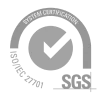On a public blockchain, anyone is free to join, and there are no restrictions when it comes to participating. It is a decentralised system in which no single entity controls the network. Instead, all users within a public chain have equal rights. This includes access to read the ledger, as well as the opportunity to take part in the consensus process and validate incoming transactions.
Characteristics of a public chain include high security, an open environment, immutability, transparency, and anonymity. Public chains use consensus mechanisms like Proof of Work (PoW), and once data is added to the blockchain, it cannot be changed. Anyone can participate on a public blockchain and view the ledger and its transactions at any time. Additionally, users do not have to use their real names to participate on a public blockchain.
The most prominent public blockchains today include Bitcoin, Ethereum, and Cardano.




